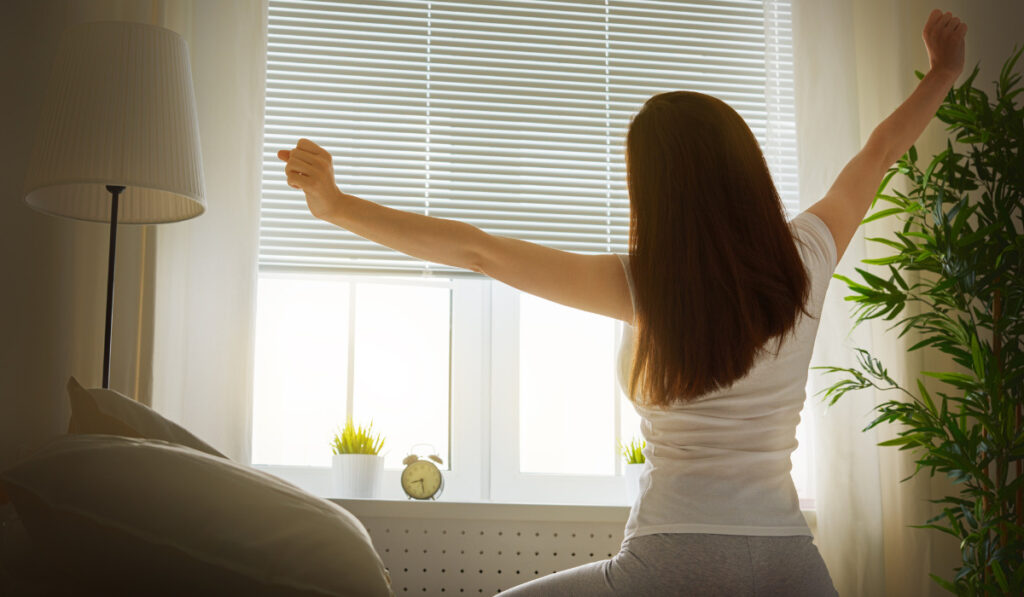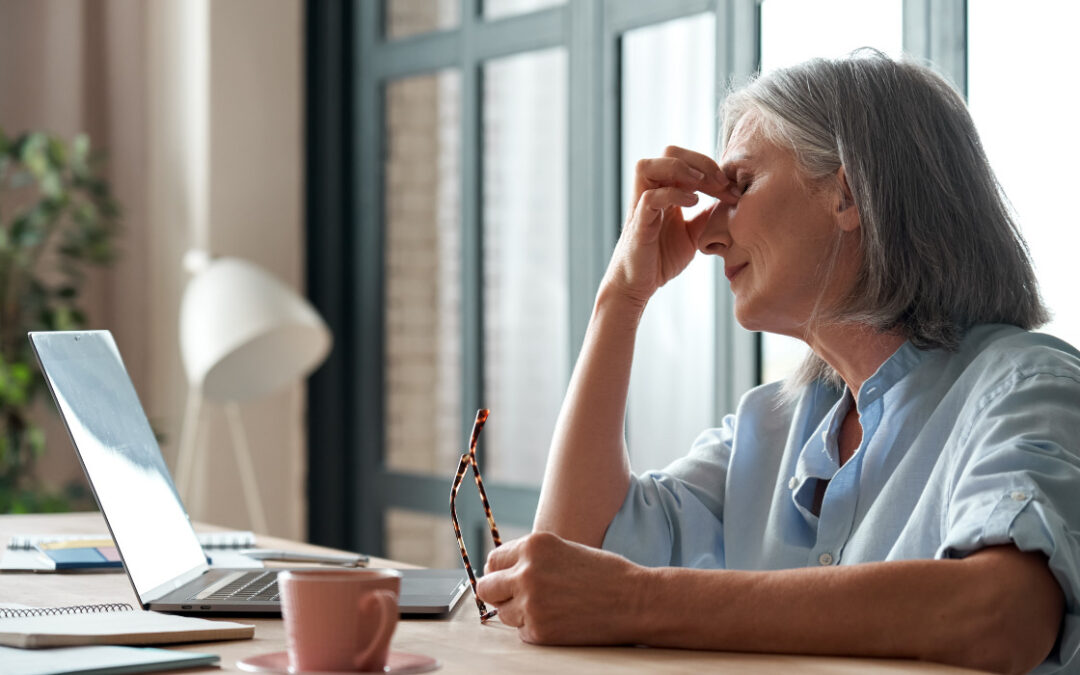Foggy brain can leave you feeling exhausted and unproductive. While we all might feel tired now and then, you shouldn’t go through life feeling foggy, or like you are in need of a nap.
If you are feeling low-energy, foggy, or need some kind of boost to your routine, take a look at what you are doing every single day, and start to incorporate these tips:
- Stick to your schedule and avoid long naps: Get up at the same time every day, weekends, and holidays included. Your body has a clock called a “circadian rhythm.” When it is out of sync due to a sleeping time change, you will feel “Social Jetlag.” Avoid long napping as it will disrupt your nighttime sleep. If you must nap, take a “power nap” of 30 minutes. The Journal of Alzheimer’s & Dementia reported in 2019 that napping can be an early sign of Alzheimer’s disease. Look at why you are napping.
- Don’t stay up late at night: Your bedtime may fluctuate a bit, make sure your overall sleeping hours are the same.
The best bedtime is when you feel most sleepy before midnight. Personally, I go to bed way before that. Before bedtime I have a routine: I read something that stimulates my thinking, I Meditate for 15 to 30 minutes, and then I express my gratitude for that day. (Have you ever taken time out to develop your gratitude practice? You can start now!)
You will notice that during this time there is no TV, no cellphones, no mindless scrolling on the internet. You might be in the habit of checking your phone or email multiple times as you get ready for bed, but that’s a habit you need to change.
If you want ideas on how to incorporate other habits into your bedtime routine, read my blog on Simple Healthy Living Habits.
- Wake up to early Morning light: Exposing your eyes to sunlight first thing in the morning sets up your body clock. We are wired to get up early and start our day with the rising sun. The data tells us that getting up with the early morning light helps increase alertness and also, ironically, improves sleep!

- Get Moving: Regular exercise routine of yourself promotes good sleep, great brain health, and your ideal weight.
- Watch what you eat and drink: Avoid coffee and tea during the later part of the day as it will disrupt your sleep. Avoid alcohol as it will disrupt the restorative slow wave sleep, which really relaxes and rejuvenates our body with lots of energy.
Your last meal of the day should not be a heavy one. Heavy meals at dinner eaten late and close to the time you go to sleep will take away energy from you as your body is using this energy to digest your food. This means that when you wake up you are not rested. (Have you ever woken up and felt tired already). Instead, eat a lighter dinner and also eat 4 hours before going to bed.
- Mind your Medicine: Some medication contains ingredients that affect sleep. Some of them have caffeine, pseudoephedrine, antidepressants, steroids, and beta blockers medicine for Parkinson’s can all affect your sleep. See if you can take them earlier so it lessens the impact on your sleep.
- Cool, quiet and dark: The ideal temperature for sleep is between 60 to 67 degrees Fahrenheit. Sleep in a dark room with no lights, and no electronics near you. Consider a sleep mask if you need one, and use a sound machine or white noise to block out any outdoor noise if you live in an urban part of the town. Keep pets out of the bedroom as they may disrupt your sleep by moving around or making noise during the night.
- Eliminate Electronics: Keep your bedroom for sleep, not looking at any types of screens, your smart phone included. Screens and electronics contain blue wavelengths which suppress your sleep by suppressing melatonin, the hormone needed for sleep. If you want to read before bed (which is a great idea!) reading a paper book rather than using an electronic book reader at night, as they also emit blue light.
- Established bedtime Rituals: Use 30 to 60 minutes before bed to unwind yourself. As I said before, put down your electronics. Take a warm shower, read a book, write in your gratitude journal, or connect with your family or spouse.

Remember, “Early to bed early to rise” is the best recipe for your health. You want to wake up with lots of good energy and creativity.
- Know the warning signs: Are you having trouble falling asleep or trouble staying asleep? Do you have low energy and can’t figure out why? You may have a bona fide sleep disorder, and if so, you need help. Those symptoms include:
- trouble falling asleep or staying asleep three times a week for at least three months;
- frequent snoring
- persistent daytime sleepiness
- leg discomfort before sleep
- acting out your dreams during sleep
- grinding your teeth or waking up with a headache or aching jaws.
Sleep impacts all that we do and all that we are.
I was working with one of my coaching clients and he had some issues with his health like diabetes, blood pressure problems, and arthritis. When I really looked at his lifestyle, I found he was having issues with his sleep. I advised him to get help with his sleep.
With just a few lifestyle changes he was able to sleep better, and get his blood pressure and sugar under control. His inflammation went down, and so did the pain with his arthritis. Ultimately, his life is so much better.
Sleep is the most important thing for your Health, as well as creativity and energy.
Want a free assessment to see if your sleep might be compromising your health? You can schedule yours here.

